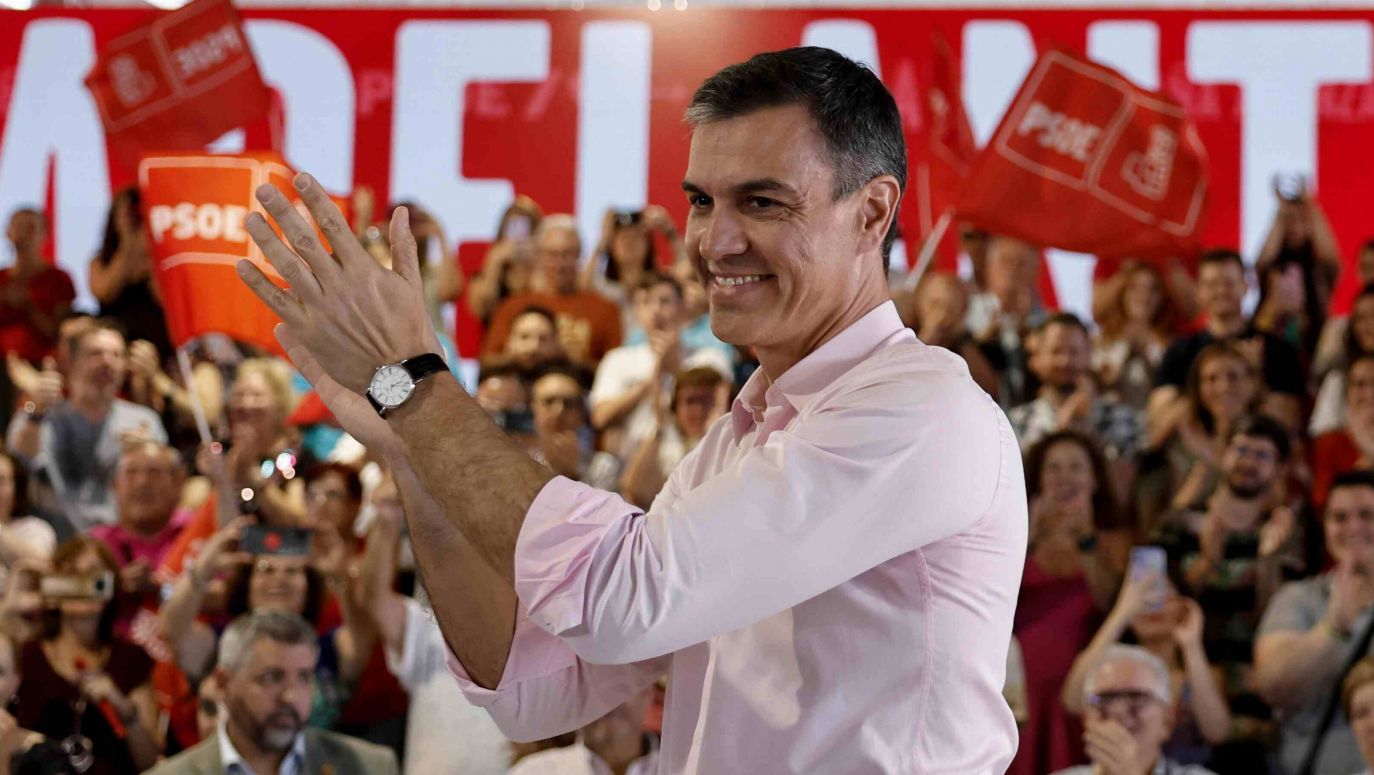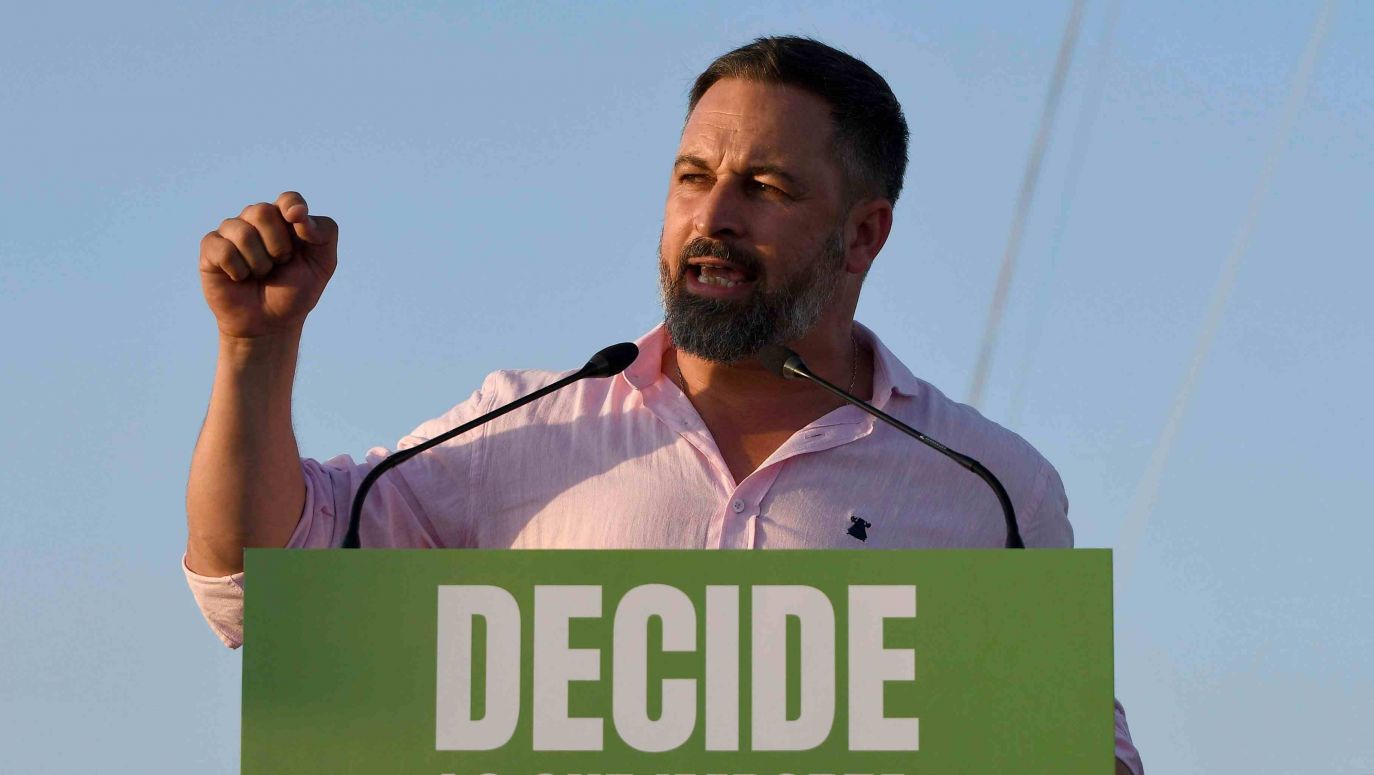In turn, the new government of Extremadura is expected to focus on supporting families, fighting unemployment, poverty and tackling the depopulation of the region. The programme document includes a promise of a 'comprehensive tax cut', a defence of hunting and bullfighting, which is so fiercely fought by the left, and the provision of more measures against 'illegal occupation of property'. The coalition government also promised to abolish inheritance and donation tax. Both parties have pledged to guarantee the 'ideological neutrality' of education in the region, recognising the right of parents to decide on their children's education in line with their beliefs. The coalition will also look at forestry policy to allow traditional agricultural activities in the mountains, including livestock farming, which the left, in line with EU green policies, is trying to restrict.
These first signs are giving optimism to Spaniards awaiting change. "The PP, however, wants a coalition with Vox, but it is not talking about it openly right now so as not to scare off moderate voters, especially those who are switching to them from the PSOE," says Rodrigo Ballester, and he expects that on a national level the two parties would easily get along on economic issues. However, he does not rule out that cooperation would also be possible on worldview issues and the PP-Vox government would repeal some of the most shocking laws, such as those on the freedom to change gender, which Feijóo himself recently confirmed, explaining that "legally changing gender shouldn't be easier than getting a driving licence". The right-wing coalition could also, according to Ballester, abandon the failed sexual freedom law ('only yes means yes'). It can also be hoped that the new government would pursue policies that support Castilian, as it is discriminated against in some regions, such as Catalonia and the Basque Country.
Even under the PP government in Galicia, it is difficult to find a job in public institutions without certified knowledge of Galician, as one violin teacher of Polish origin, with 17 years of teaching experience and an excellent education, found out. She speaks Spanish with her pupils, but because of her lack of certified knowledge of Galician, she ended up unemployed.
However, there are issues where coalition harmony may be lacking, above all in what concerns the European Union. The PP is part of the European People's Party in the EP, so it can hardly be counted on to oppose, for example, the migration pact that Poland is fighting against, or further EU ideas to restrict agriculture to defend the climate.
There would also be no agreement on abortion or support for the LGBT community. The PP is also not particularly interested in the issue of mass immigration. This is why Federico Jimenez Losantos, a well-known conservative columnist, author of 'The Return of the Right' and supporter of the formation of a PP-Vox government, is pessimistic. In an interview with the daily 'Independiente', he warns that Feijóo represents a PP faction according to which the left should not be irritated and can govern if the PSOE allows it. In practice, this could mean that the PP will not decide to form an alliance with the economically liberal but traditional worldview Vox, and even if this were to happen, the conservatives would not be able to persuade Feijóo to try to reclaim even a few fields dominated by the left, not to mention any counter-revolution.
Nothing politically incorrect
Although Feijóo weighs his words when asked by the media about a possible coalition with Vox, and in municipalities such as Náquera and Torrijos the new municipal councils governed by the People's Party-Vox have banned rainbow flags, but already Maria Guardiola, prime minister of the PP-Vox government in Extremadura, has made no secret of the fact that the PP will not do anything politically incorrect. Guardiola argues in the media that her government will not deviate even by a millimetre from existing abortion laws and also does not envisage criminalising illegal immigration in any form. In doing so, she emphasises that this is not her opinion but the party's position.
Guardiola's declarations were commented on ElToroTV by José Javier Esparza, journalist and author of 'The Politically Incorrect Guide to Western Culture'. In his view, the words of the head of government of Extremadura are living proof of the social democratic consensus and a forecast for the future. "The political right has ceased to differ from the left in the ideological field, there has been a rapprochement between the former liberal-conservative right and the ex-social-democratic left and a political caste has emerged, operating all over the world with the same themes, increasingly distant from the people it is supposed to represent," Esparza explains, leaving no illusions that the People's Party is not up to carrying out a counter-revolution and there will be no earthquake in Spain.
In addition to the indecision within the ranks of the PP over a marriage of convenience with the Abascal's party, which desires a radical departure from left-wing politics, there is another uncertainty making it difficult to assess the Spanish right's chances of success. It is the timing of the election, which, according to the media, will have a major impact on the results. Spaniards have never voted in the middle of summer and, as 'Politico' notes, 10 out of 37 million Spaniards are on holiday at the time and some of them will have to vote by mail. Prime Minister Sánchez's latest dishonest ploy? Feijóo is sure of it.
– Anna Gwozdowska
TVP WEEKLY. Editorial team and jornalists
– Translated by Tomasz Krzyżanowski

 SIGN UP TO OUR PAGE
SIGN UP TO OUR PAGE
 The media have written about the over-saturation of politics - this is, after all, the second election campaign this year. The May clash, in the regions, was won collectively by the right and - as the media speculated - Prime Minister Sánchez has called early elections to stem the tide. In addition, it is the middle of the holidays. Wealthier voters, usually those who vote for more conservative parties, will be lying on the beach rather than queuing at the polls. The chance to try to reverse the far advanced process of making Spain one of the most progressive countries in Europe may therefore be missed.
The media have written about the over-saturation of politics - this is, after all, the second election campaign this year. The May clash, in the regions, was won collectively by the right and - as the media speculated - Prime Minister Sánchez has called early elections to stem the tide. In addition, it is the middle of the holidays. Wealthier voters, usually those who vote for more conservative parties, will be lying on the beach rather than queuing at the polls. The chance to try to reverse the far advanced process of making Spain one of the most progressive countries in Europe may therefore be missed.








